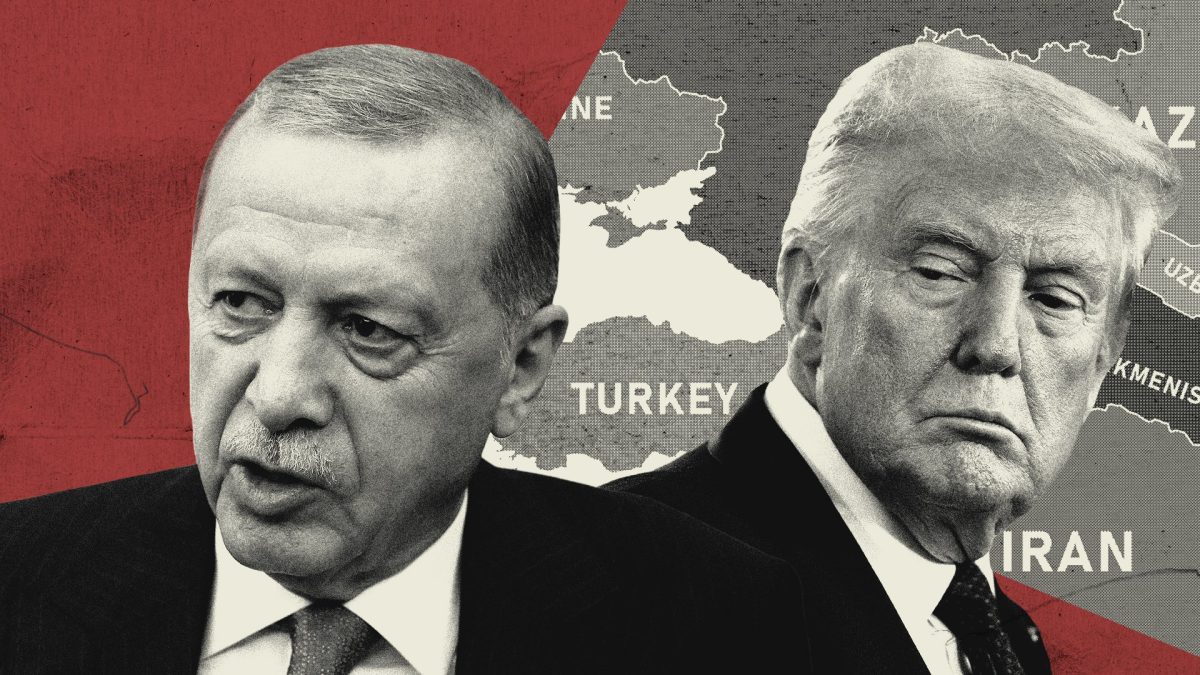
News
October 12, 2025
Turkey’s ‘Trump route’ could reshape power in Putin’s backyard
Erdogan is trying to make the most of the US President's unconventional approach to foreign policy
**Turkey’s Assertive Foreign Policy May Reshape Power Dynamics in Russia’s Sphere of Influence**
President Recep Tayyip Erdogan's Turkey is strategically leveraging what some are calling a "Trump route" in foreign policy, potentially reshaping the balance of power in regions traditionally considered within Russia's sphere of influence. This approach capitalizes on the perceived unconventional and unpredictable nature of US foreign policy under the Trump administration, creating opportunities for Turkey to assert its own interests and expand its regional influence.
Erdogan’s strategy involves a calculated dance between maintaining dialogue with Russia while simultaneously pursuing policies that directly challenge Russian interests in key areas. This delicate balancing act is evident in several ongoing conflicts and geopolitical maneuvers across the Middle East, North Africa, and the Caucasus.
One key example is Turkey's involvement in Libya, where Ankara has provided significant military support to the Government of National Accord, directly opposing Russia's backing of General Khalifa Haftar and his Libyan National Army. This intervention has not only shifted the tide of the conflict but also demonstrated Turkey's willingness to project power in the Mediterranean, a region where Russia has historically sought to maintain dominance.
Similarly, Turkey's increasing military and economic presence in Azerbaijan, including the sale of advanced weaponry, has played a significant role in the shifting dynamics in the Nagorno-Karabakh conflict. Turkey’s support for Azerbaijan has been widely seen as a challenge to Russia's traditional role as a mediator in the region and has prompted concerns in Moscow about Turkey's growing influence in the Caucasus.
Experts suggest that Erdogan is exploiting the perceived inconsistencies and ambiguities in US foreign policy to create space for Turkey to act more independently and assertively. The "Trump route" essentially allows Turkey to navigate geopolitical complexities by capitalizing on the potential for strategic miscalculations and shifting alliances.
However, this approach carries inherent risks. Overplaying its hand could lead to a direct confrontation with Russia, a scenario that both Ankara and Moscow are keen to avoid. Furthermore, the long-term sustainability of this strategy depends heavily on the future direction of US foreign policy and the potential for a more predictable and consistent approach under a new administration. The success of Turkey's assertive foreign policy hinges on its ability to carefully manage its relationships with both Russia and the United States, ensuring that its actions do not trigger unintended consequences that could destabilize the region. The coming months will be crucial in determining whether Turkey can successfully reshape the power dynamics in Putin's backyard.
President Recep Tayyip Erdogan's Turkey is strategically leveraging what some are calling a "Trump route" in foreign policy, potentially reshaping the balance of power in regions traditionally considered within Russia's sphere of influence. This approach capitalizes on the perceived unconventional and unpredictable nature of US foreign policy under the Trump administration, creating opportunities for Turkey to assert its own interests and expand its regional influence.
Erdogan’s strategy involves a calculated dance between maintaining dialogue with Russia while simultaneously pursuing policies that directly challenge Russian interests in key areas. This delicate balancing act is evident in several ongoing conflicts and geopolitical maneuvers across the Middle East, North Africa, and the Caucasus.
One key example is Turkey's involvement in Libya, where Ankara has provided significant military support to the Government of National Accord, directly opposing Russia's backing of General Khalifa Haftar and his Libyan National Army. This intervention has not only shifted the tide of the conflict but also demonstrated Turkey's willingness to project power in the Mediterranean, a region where Russia has historically sought to maintain dominance.
Similarly, Turkey's increasing military and economic presence in Azerbaijan, including the sale of advanced weaponry, has played a significant role in the shifting dynamics in the Nagorno-Karabakh conflict. Turkey’s support for Azerbaijan has been widely seen as a challenge to Russia's traditional role as a mediator in the region and has prompted concerns in Moscow about Turkey's growing influence in the Caucasus.
Experts suggest that Erdogan is exploiting the perceived inconsistencies and ambiguities in US foreign policy to create space for Turkey to act more independently and assertively. The "Trump route" essentially allows Turkey to navigate geopolitical complexities by capitalizing on the potential for strategic miscalculations and shifting alliances.
However, this approach carries inherent risks. Overplaying its hand could lead to a direct confrontation with Russia, a scenario that both Ankara and Moscow are keen to avoid. Furthermore, the long-term sustainability of this strategy depends heavily on the future direction of US foreign policy and the potential for a more predictable and consistent approach under a new administration. The success of Turkey's assertive foreign policy hinges on its ability to carefully manage its relationships with both Russia and the United States, ensuring that its actions do not trigger unintended consequences that could destabilize the region. The coming months will be crucial in determining whether Turkey can successfully reshape the power dynamics in Putin's backyard.
Category:
World